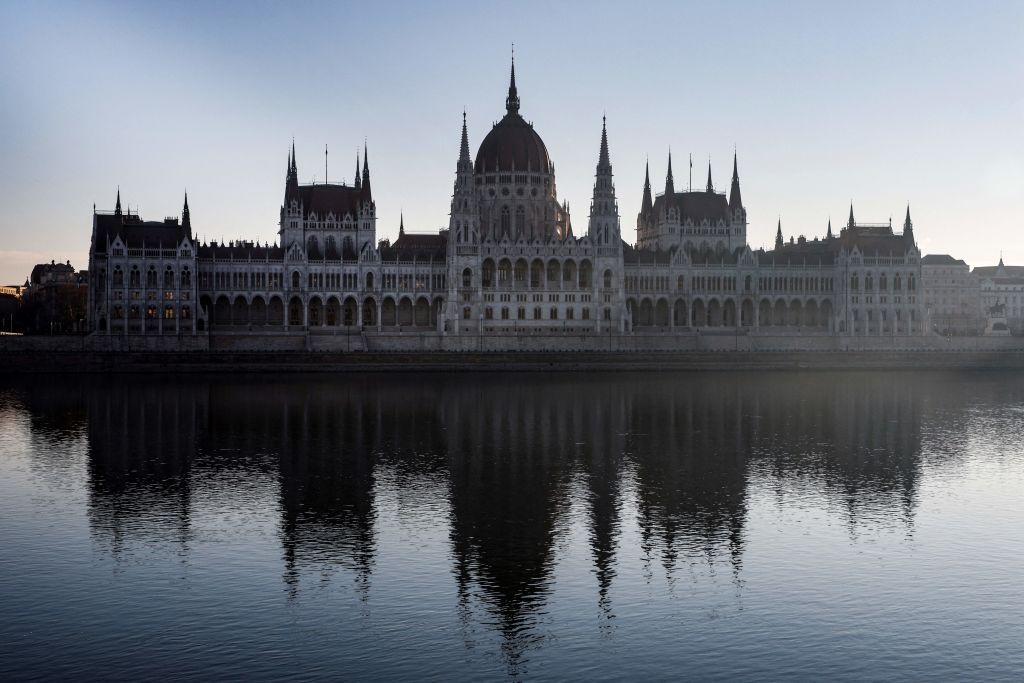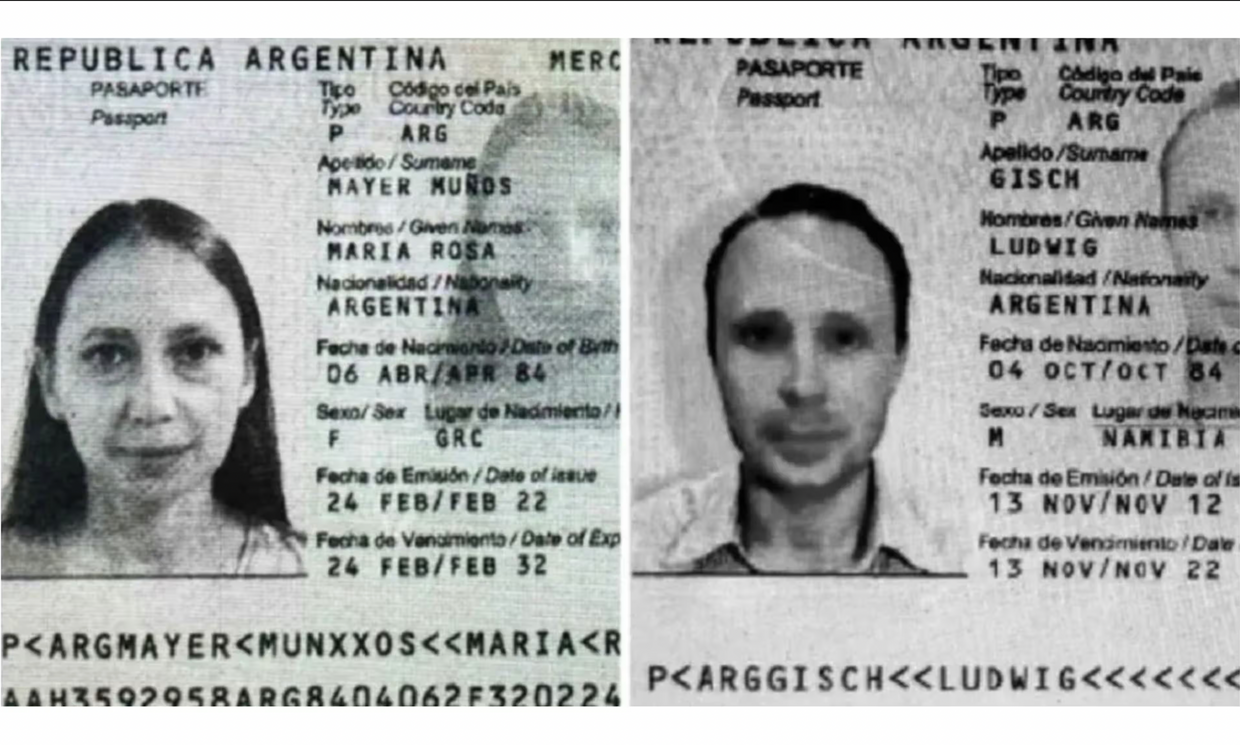Belarus Weekly: Lukashenko releases German hostage as part of historic prisoner swap

Belarusian dictator Alexander Lukashenko pardons German citizen facing death penalty in Belarus as part of a major prisoner swap between Moscow, Washington and Berlin.
Security concerns prompt the European Commission to ask Hungary to clarify its decision to ease immigration requirements for Russian and Belarusian citizens.
Lukashenko meets Vladimir Putin of Russia for the fifth time in 2024 for secret talks.
North Korea and Belarus vow stronger bilateral ties after Belarus' foreign minister visits Pyongyang.
Belarusian political prisoners nearing ends of prison terms “pressured to seek pardons from Lukashenko.”
Belarusian authorities detain political prisoner's relatives during their visit to the penal colony.
German sentenced to death in Belarus pardoned, released as part of historic prisoner swap
Belarusian dictator Alexander Lukashenko has pardoned a German citizen, Rico Krieger, sentenced to death by a Belarusian court on June 24 for allegedly committing a terrorist act, Belarusian state-owned news agency BelTA reported on July 30.
Rico Krieger was sentenced to death by firing squad. According to Belarusian propaganda reports, he planted explosives at a railway station in Azyaryshcha, a military cargo loading hub just east of Minsk, on Oct. 5, 2023.
Krieger’s Belarusian defense team did not appeal against the court’s ruling. On July 30, he reportedly sent an appeal to Lukashenko asking for a pardon.
The pardon comes hours after Lukashenko said he had held consultations with his officials, “who are privy to the case,” including KGB Head Ivan Tertel, President’s Administration Deputy Head Olga Chupris, and Krieger’s case investigator, attorney, and propagandist Ludmila Hladkaya, who had been allowed to attend the secret trial.
Germany's Foreign Office confirmed the granting of the pardon, saying the news was a “relief.”
Russia and several Western countries held a historic prisoner exchange on Aug. 1, the largest such move in almost 15 years.
Russian activists, journalists, and dual citizens are among those who have been freed, as well as Wall Street Journal reporter Evan Gershkovich and ex-U.S. Marine Paul Whelan.
As part of the operation, 10 prisoners were transferred to Russia, 13 prisoners were transported to Germany, and three were handed over to the U.S.
The list included convicted Russian hitman sentenced to life imprisonment in Germany Vadim Krasikov, Mikhail Mikushin, and Pavel Rubtsov, accused of spying for Moscow, hacker Roman Seleznev, Vladislav Klyushin, businessman jailed for a hack-and-trade scheme.
EU to seek clarifications on Hungary’s relaxed immigration rules for Russians, Belarusians
The European Commission expects Hungary to clarify the recent decision by its government to relax its entry requirements for Russians and Belarusians, European Commission representative Anita Hipper said during a briefing on July 30.
“According to our policy, Russia is a threat to the security of the European Union, so its members must take all measures to ensure the security of the EU and the Schengen area,” Hipper said.
The scope of the scheme and whether it falls under the remit of the EU rules are to be scrutinized, she said.
Earlier, Hungary quietly simplified the rules for Russian and Belarusian citizens to acquire a Hungarian National Card and to enter the country in a streamlined visa-acquisition process that does away with enhanced security checks and other restrictions.
The program, which was until recently available to Serbian and Ukrainian citizens, was expanded to include citizens from Belarus, Russia, Bosnia and Herzegovina, Moldova, North Macedonia, and Montenegro on July 8, shortly after Hungarian Prime Minister Viktor Orban visited Moscow.
European People’s Party Chief Manfred Weber urged the European Council Head Charles Michel to raise the issue of Hungary’s “questionable” decision at the next leaders’ summit in October. According to a letter from Weber to Michel published by Financial Times on July 30, the expansion of Hungary’s visa eligibility program could “create grave loopholes for espionage activities,” providing Russians with an opportunity to “move around the Schengen area, bypassing the restrictions required by EU law.”
The Hungarian National Card is issued for two years to those wanting to work or start a business in Hungary, allowing them to bring in their families and requiring no tests of cultural ties or awareness. It can be renewed an unlimited number of times. After eight years, bearers of the card can apply for Hungarian citizenship.
Budapest has been long considered the most Kremlin-friendly country within the EU, with Orban’s government repeatedly obstructing sanctions against Russia and military aid to Kyiv.
Hungarian Foreign Minister Péter Szijjártó is the only high-ranking European official who has visited Belarus in the aftermath of the fraudulent 2020 presidential elections, which were internationally recognized as neither free nor fair.
During his latest visit to Minsk, Szijjártó reiterated that Hungary does not agree with the EU sanctions and would develop ties “in areas not affected by sanctions.”
Lukashenko, Putin meet behind closed doors, again
Belarusian dictator Alexander Lukashenko and his Russian counterpart Vladimir Putin held talks behind closed doors on Valaam Island, northern Russia, Belarusian state-owned media BelTA reported on July 27.
Lukashenko arrived in Russia on July 25 to discuss, as reported by his press service, the “development of Belarusian-Russian relations, the promotion of allied projects, regional security, and international agenda.” The fifth set of talks between the allies lasted three days, but neither side produced official statements, leaving an almost complete information vacuum.

Speaking to his officials on July 29, Lukashenko claimed that security issues were the focus of his secretive talks with Putin.
The Belarusian dictator also said he discussed new pricing, utilization fees, and prepayment for Russia’s crude oil for Belarus, which has been the main point of contention between Russia and Belarus for decades.
Belarusian political analyst Aleksander Klaskouski said that despite disagreements the two dictators might have, the meeting likely involved “the usual haggling over the price of (Lukashenko’s) allegiance.”
Minsk, a staunch Kremlin ally, has not committed troops to the battlefield but has been enabling Russian aggression against Ukraine for over two years by providing its territory for use by the Russian army, as well as participating in Russia’s nuclear blackmail by allegedly hosting Russian nuclear weapons on its soil.
Minsk, Pyongyang strengthen ties after Belarusian foreign minister’s visit to North Korea
North Korea is keen to boost ties with Belarus and “open a new era” in relations, North Korean Foreign Minister Choe Son Hui said after meeting her Belarusian counterpart Maxim Ryzhankou in Pyongyang on July 24, the state-owned Korean Central News Agency reported.
Ryzhankou arrived in Pyongyang on July 24 for what was officially announced as a “return visit.” He met with Prime Minister Kim Tok Hun, reportedly agreeing to “intensify bilateral cooperation in education, healthcare, and agriculture.”
Following the visit, the North Korean Foreign Ministry published a message from Belarusian dictator Alexander Lukashenko to Kim Jong Un, which contained a promise to expand cooperation. Belarusian official sources did not publish the message.
North Korea and Belarus are among Russia’s few remaining allies amid growing international isolation.
North Korea supplied Russia with millions of artillery shells and became a party in the military assistance pact the two countries signed on July 20. In it, they vow to come to each other’s aid in the event of war.
Belarus, which Lukashenko allowed to be used as a launchpad for Russia’s war of aggression against Ukraine, has long hosted Russian troops, and part of Russia’s nuclear arsenal is allegedly now stationed in the country.
Viasna: Political prisoners in Belarus forced to petition for pardon
Belarusian political prisoners whose prison terms are nearing an end are being forced to write petitions for pardons to Lukashenko, the Viasna Human Rights Center reported on July 29.
According to Viasna, prosecutors have started visiting Navapolatsk Penal Colony No. 1 daily, pressuring prisoners with the shortest remaining terms to write petitions – under the threat of solitary confinement or additional prison terms.
Instances of such pressure were independently reported in colony No. 15 near Mahiloiu by the Belarusian Service of RFE/RL. Human rights watchdog Dissident.by has recorded similar occurrences in various penal institutions across the country.
In early July, Lukashenko unexpectedly announced the possible release of selected “seriously ill” political prisoners. Human Rights activists then reported that 18 prisoners had been released, including the leader of the dissolved BNF party, Ryhor Kostuseu, who is suffering from cancer.
Also among the released was Darya Losik, the wife of imprisoned RFE/RL journalist Ihar Losik. She had been jailed for two years for giving interviews about her detained husband.
However, nearly a third of the released prisoners were within a month of the end of their prison sentences, said Andrei Stryzhak, the head of BYSOL, a charity foundation helping political prisoners and dissidents in Belarus.
Belarus Supreme Court Chairman Valiantsin Sukala on July 21 promised more potential releases in an interview with the state-owned TV channel “Belarus 1.”
A petition for a pardon has to be personally addressed to Lukashenko. It entails full admission of guilt and a promise to abstain from committing the “crime” again, making it morally inadmissible for some political prisoners. Viasna Center claimed several political prisoners were not released on July 3 due to their refusal to write such pleas.
Mother, aunt of political prisoner detained during visit to penal colony
The mother and aunt of political prisoner Aliaksandr Frantskevich – Tatsyana Frantskevich and Natallya Labatsevich – were detained on charges of extremism as they visited a penal colony to deliver a care package to the imprisoned anarchist, Belarusian journalist and activist Yauheniya Douhaya reported on July 25.
Frantskevich and Labatsevich visited the penal colony in Vaukavysk to transfer the care package to Aliaksandr Frantskevich, who was sentenced to 16 years and nine months for allegedly “creating an extremist formation.” In March 2023, Belarus’ KGB security service branded him a terrorist.
The women were detained on the colony’s premises. Tatsyana Frantskevich is now accused of “participating in an extremist formation,” which is punishable by up to seven years in prison.
The Belarusian KGB’s list of terrorists now includes over 1,200 persons, many of whom have actually been charged on political grounds. Their financial operations are blocked, and any transfers to their accounts can be deemed “financing of extremism” under the current regime’s legislation.
In January 2024, the Lukashenko regime intensified its crackdown on civil society by prosecuting political prisoners’ relatives and former political prisoners for supporting those in detention.
Among the more than 200 Belarusians detained on Jan. 23-24 for providing food aid to political prisoners, several have been charged with “aiding extremist activities.”














